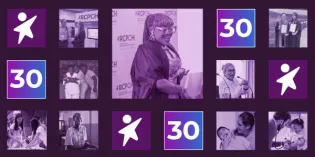Formed in 1986, the BPSU is a activity supported by Public Health England, UCL Institute of Child Health and the Royal College of Paediatrics and Child Health.
The unit aims to:
- facilitate research into uncommon childhood infections and disorders for the advancement of knowledge and to effect practical improvement in prevention, treatment and service planning
- allow paediatricians to participate in surveillance of uncommon disorders and to lessen the burden on reporting doctors of such requests arising from numerous different sources
- increase awareness within the medical profession and public of the less common disorders studied and respond rapidly to public health emergencies
- collaborate with our link surveillance units in the UK and across the world.
Phone: +44 (0)20 7092 6173/74
Email: bpsu@rcpch.ac.uk
Recent content
News
We're hosting a free two-day symposia on COVID-19 from a paediatric perspective
1 April 2021
The British Paediatric Surveillance Unit in collaboration with Public Health England are to commence a series of webinars accessible by all. Registration is free for both days, more details on how to sign up can be found below.
News
Richard Lynn to step down from BPSU with more than three decades of service
16 February 2021
After 31 years of dedicated service as the British Paediatric Surveillance Unit’s (BPSU) Scientific Coordinator, Richard Lynn will be leaving the BPSU at the end of March. Richard’s unparalleled commitment to the BPSU and rare disease epidemiology has been integral to the Unit’s continued success.
Basic page
BPSU study - Avoidant/Restrictive Food Intake Disorder (ARFID)
Surveillance of Avoidant/Restrictive Food Intake Disorder (ARFID) is due to commence in March 2021. In conjunction with parallel reporting through the Child and Adolescent Psychiatric Surveillance System, this study aims to establish incidence rates of ARFID presenting to secondary health care, refe...
Basic page
BPSU study - Chronic recurrent multifocal osteomyelitis/ chronic nonbacterial osteomyelitis (CRMO/CNO)
Surveillance of chronic recurrent multifocal osteomyelitis/ chronic nonbacterial osteomyelitis (CRMO/CNO) commenced in October 2020. It is being led by Dr Chenqu Suo, winner of the Sir Peter Tizard Bursary 2018-19. This study intends to find out how common CRMO/CNO is, and who is involved in the car...
Basic page
BPSU study - Multisystem inflammatory syndrome, Kawasaki disease and toxic shock syndrome
Surveillance of multisystem inflammatory syndrome has now commenced. Our aim is to understand the incidence, presenting features, laboratory features, management, clinical course and the outcome of this potentially new syndrome characterised by hyperinflammation which is temporally associated with C...
Basic page
BPSU 'snap-shot' survey - delayed presentations to hospitals
The COVID-19 pandemic led to concerns that children are, for various reasons, presenting late to emergency departments. This has led to delayed diagnosis and hence a delay in treatment. Such presentation delays are well known, but they appear to have increased during this pandemic. Unfortunately, th...
News
BPSU study to look at neonatal complications of COVID-19
1 April 2020
The British Paediatric Surveillance Unit has now started collecting data on neonatal complications of coronavirus disease (COVID-19) in the UK and Northern Ireland. This study is needed to understand the impact of Coronavirus infection in newborn babies and babies born to mothers with Coronavirus, s...
Basic page
BPSU study - Neonatal complications of coronavirus disease (COVID-19)
Surveillance of the neonatal complications of coronavirus disease (COVID-19) commenced in March 2020. The study aims to find out how many babies develop coronavirus infection in the first month after birth, and how many babies born to women with coronavirus need neonatal care; describe which babies ...
Basic page
BPSU study - Conservative care in end-stage kidney disease
This surveillance study commenced in September 2020. This study aims to identify children with ESKD who receive conservative care, to understand how the decision not to start renal replacement therapy is made and important factors that are considered in this decision-making process.
Basic page
BPSU study - Glucocorticoid induced adrenal suppression
BPSU surveillance of outcome of symptomatic glucocorticoid induced adrenal suppression commenced in September 2020. This study will estimate how many people are presenting to healthcare providers with adrenal suppression causing symptoms because of them currently or previously taking glucocorticoid ...







